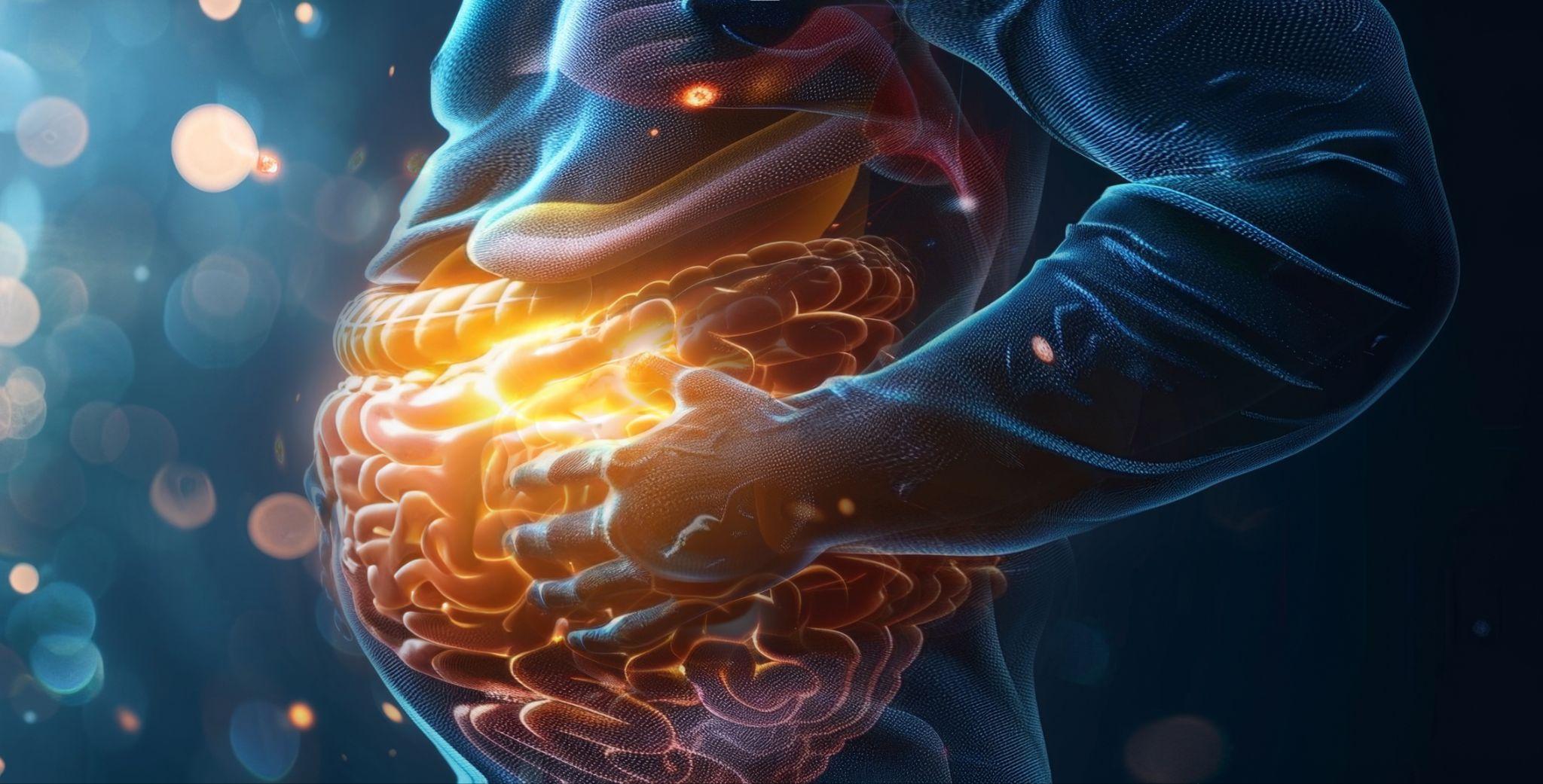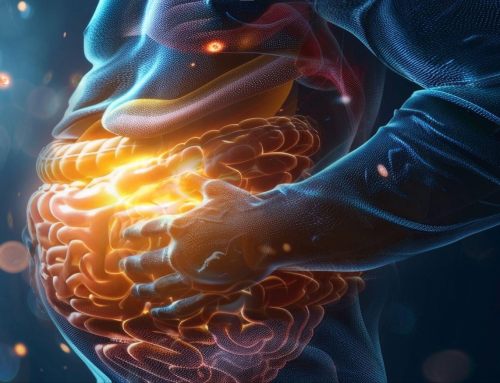Sleep Physiology and the Gut-Immune-Brain Network
Sleep is vital to optimal wellness, providing energy, alertness, improved health, steadier blood sugar levels, a better functioning immune system, and the list goes on. Yet, healthcare providers frequently receive patient complaints about insufficient sleep, making individuals more anxious and prone to significant health problems. Chronic sleep disturbance dramatically impacts a person’s quality of life, and typical patient concerns due to sleep deprivation include fatigue and lack of energy for daily activities, weight gain, and loss of mental focus (1). Early symptoms of sleep disturbance can range from difficulty falling and staying asleep to an inability to wake quickly in the morning. Other signs of disrupted sleep include restlessness in muscles and joints, snoring or gasping for air during sleep, daytime sleepiness, and mood changes like anxiety and irritability (1). When left untreated, sleep disturbance can lead to chronic insomnia, narcolepsy, apnea, restless leg syndrome, metabolic imbalances, mood disorders, and more (2).
An estimated 40 million Americans of all ages experience chronic sleep disorders, leading to an increased risk of cardiovascular disease (CVD) and CVD-related deaths (2). Getting good quality sleep during the hours of the natural circadian rhythm is vital to maintaining good health (3), as sleep cycles influence hormonal balance, metabolism, immune function, and cognition (2, 3).
The gut microbiome (GM) interacts with the body’s central circadian clock, regulating the sleep-wake cycle on a diurnal rhythm and producing metabolites to influence circadian clock gene expression (3). Changes in the GM composition may disrupt this interaction and contribute to circadian rhythm disturbances, leading to sleep problems.
Sound sleep involves more than caffeine avoidance and sleep hygiene practices.
Recent research investigating the intersection of altered sleep physiology and the balance of intestinal microbial species shows a chicken-and-egg scenario in which disturbed sleep adversely impacts GM composition. Conversely, an altered microbial community contributes to disrupted sleep patterns by releasing excitatory inflammatory molecules targeting pathogens (2).
The microbial population in the human gastrointestinal tract (GI) is a diverse community of bacteria, fungi, and viruses (4). Functional practitioners are well-versed in the continued research highlighting various aspects of health regulated by this symbiotic microbial community, and sleep patterns are no exception. Alterations in the composition and diversity of the GM, known as dysbiosis, have been associated with myriad GI diseases involving a damaged intestinal mucosal lining, loss of functional immune protection against pathogens, and neurotransmitter deficiencies leading to mood disorders and sleep disturbances (5). Research into the exact physiological mechanisms linking GM alterations to sleep physiology continues, and several potential pathways within the triad of the GM, the immune system, and the brain are indicated.
The Gut-Immune-Brain Axis
The gut-immune-brain axis (GIBA) describes the network of bidirectional signaling pathways allowing integrated communication between the gut/gut microbiome, the immune system, and the brain. Signaling among the triad occurs via the enteric nervous system (ENS), the autonomic nervous system (ANS) primarily along the vagus nerve, and through neuroendocrine molecular communication with the immune system (5).
Like an independent organ, the GM sends and receives neuronal and molecular communications to and from the brain and immune system, modulating function by contributing microbe-derived amino acids, neurotransmitters, and short-chain fatty acids to convey information and promote inflammation management. Perturbations in the functional dialogue among the GIBA lead to disruptions in immune responses, hormone production and receptivity, cognitive function and mood balance, metabolism and energy regulation, and sleep patterns (6).
Multiple bacteria-derived metabolites are identified as the communicators for connection to the human host via the GIBA (6). The short-chain fatty acids (SCFA) butyrate and acetate are produced via bacterial fermentation and serve to inhibit pro-inflammatory cytokines and stimulate T-Reg cells, attenuating intestinal inflammation. Stimulation of interleukin-22 (IL-22) by the bacterial metabolite indole generates a cascade of immune-related peptide production for protection against pathogens. Bacterial polysaccharide A inhibits the production of pro-inflammatory IL-17 found in colitis and other autoimmune digestive disorders while upregulating anti-inflammatory IL-10 (6). The balance of pro- and anti-inflammatory cytokines modulated by the GM contributes to the upregulation of B-cell differentiation and improved adaptive immunity in the GI tract (6). Cytokine modulation through such coordinated signaling along the GIBA pathways represents a critical juncture between optimal sleep physiology and the composition and diversity of the microbiome (6).
Diversity is Key to a Healthy Community
Beyond general dysbiosis, the concentration and inclusion of specific bacterial species play important roles in GIBA signaling of sleep physiology (6). Markers of sleep physiology include total sleep time, sleep efficiency, number of awakenings (sleep fragmentation), timing of waking after sleep onset, and total time in bed. Together these sleep physiology measures contribute to sleep efficiency, though individual physiological uniqueness suggests there is no one best efficiency measure.
Overall gut microbiome diversity is positively associated with increased sleep efficiency and with total sleep time. Recent research identifies several species of Bacterioidetes, Actinobacteria, and Firmicutes bacteria shown to produce gamma-aminobutyric acid (GABA), a sleep-promoting neurotransmitter. Serotonin, a critical mood and sleep modulating neurotransmitter, is reportedly synthesized by the phyla Corynebacterium and has a role as a GIBA signaling molecule (6).
Predictive Treatment for a Gut Gone Wrong
Dysbiosis in the GM leads to an imbalance of beneficial and harmful bacteria, resulting in increased gut permeability and the release of pro-inflammatory molecules into the bloodstream to generate an immune response (5). Chronic low-grade inflammation, known as systemic inflammation, has been linked to sleep disorders such as insomnia and sleep apnea (7).
Researchers studying the impacts of long-term (4.5 months) ocean voyaging on the health status of seafaring crew members used pre- and post-voyage stool samples and health questionnaires to assess the correlation of dysbiosis to measures of sub-optimal health, including nausea, overeating, abnormal defecation frequency, insomnia, and poor sleep quality. Study results found a significant correlation between chronic dysbiosis and the combined seafaring syndrome (SS) symptoms, with 71% of subjects reporting worsening dysbiosis and insomnia post-voyage. A follow-up voyage of 30 days with the same crew confirmed the predictive model showing the extreme environment of living and working on an ocean voyage contributes to dysbiosis and concurrent collective SS symptoms, especially sleep deprivation (7). Study authors suggest the predicted correlation of dysbiosis with disease-promoting risk factors like insomnia provides a basis for clinical pretreatment of dysbiosis with proven probiotic species Lactobacillus casei, Lactobacillus plantarum P-8, Lactobacillus rhamnosis Probio-M9, Bifidobacterium lactis V9, and Bifidobacterium lactis Probio-M8 to prevent sleep disruption and digestive disorders under extreme living conditions (7).
As mentioned previously, SCFAs are important microbial metabolites for immune system modulation and directly and indirectly impact brain function and mood via the energy supplied to brain tissue (8). The quantity of endogenous butyrate production by the human host pales compared to amounts produced by anaerobic fermentation of non-digestible fibers and dairy products by the lower intestinal bacteria (9). Recent evidence in animal model studies indicates that the GM delivers intestinal butyrate as a robust sleep-inducing signal, potentially controlled by a sensory mechanism within the liver and portal vein (9). Using non-rapid-eye movement sleep (NREMS) and lowered body temperature as physiological markers of sleep induction, researchers in a murine study applied butyrate either via oral lavage to mimic the effect of intestinal butyrate or via systemic injection of the same dose of butyrate into mice at the beginning of an induced dark sleep cycle. Results showed the oral treatment effective at increasing NREMS by 50% for 4 hours while eliciting a 0.4-1.2o drop in body temperature, a physiological marker proposed to promote sleepiness in mammals. Systemic injection of butyrate showed no significant changes, suggesting the involvement of the liver in eliminating systemic butyrate from the portal blood (9). The results of this study have implications for future research into hepatoportal butyrate mechanisms as a target of sleep pattern therapies.
Stress and the GIBA
The gut-immune-brain axis is sensitive to dietary, lifestyle, and psychoemotional stressors (7), with acute sleep deprivation from fragmented sleep reported to alter microbial composition within 48 hours (6). Fragmented sleep due to repeated awakening, and poor sleep quality from short sleep duration, are associated with impaired cognitive function, especially in conjunction with perceived life stressors.
Sleep loss due to the psychological stress of studying and preparing for collegiate exams, and the correlation to GM diversity, was the subject of a human trial involving college students. Subjects were asked to wear an Actiwatch for 30 days to collect sleep physiology markers, and saliva samples were taken at trial start to measure cortisol, IL-1B, and IL-6 as indicators of the neuroimmune response to stress. Fecal samples were collected and analyzed for microbial diversity at the study start and conclusion, with both samples collected within 12 hours of neurobehavioral testing using a cognitive battery exam. Study results indicated subjects with rich GM diversity were rewarded with the highest sleep efficiency and total sleep time, despite the perceived stress of testing. IL-6 was positively associated with microbial richness and diversity, though IL-6 was not significantly correlated to sleep efficiency. Cognitive function was positively impacted by microbial diversity, increased daytime IL-6 levels, and healthy sleep (6), pointing to the effectiveness of the GIBA communication pathways. Future research is warranted on the therapeutic manipulation of the gut microbiome toward improving sleep, immune, and cognitive function.
It is important to note that the relationship between the gut microbiome and sleep disturbances is complex, and further research is needed to understand the underlying mechanisms fully. Nonetheless, these proposed pathways of the GIBA triad provide insights into how alterations in the gut microbial composition may contribute to sleep problems, with a converse impact of disrupted sleep cycles on the GM balance.
We hope you will return for part two of this article series, in which we will explore gut and sleep function assessment and clinical approaches to improving sleep, through the lens of the interface of the gut microbiome with the gut-immune-sleep axis.
~
Help your patients get to the root cause of their sleep disorders with a deeper investigation into the connection between sleep physiology and the functional status of the gut-immune-brain network. Join PLMI as we learn from the leading experts on this critical topic during our free, live, virtual webinar on August 29, 2023, from 5-7 pm PST. Registration is FREE and takes just a minute using the following link: The Sleep-Gut-Brain Connection.
Sources:
- Cleveland Clinic, Health Library, Diseases & Conditions, Sleep Disorders [Internet]. Cleveland, Ohio: Cleveland Clinic; 2023 June [cited 2023 July 12]. Available from: https://my.clevelandclinic.org/health/diseases/11429-sleep-disorders
- Neroni B, Evangelisti M, Radocchia G, Di Nardo G, Pantanella F, Villa MP, Schippa S. Relationship between sleep disorders and gut dysbiosis: what affects what? Sleep Med. 2021 Nov;87:1-7. doi: 10.1016/j.sleep.2021.08.003. Epub 2021 Aug 18. PMID: 34479058.
- Lee Y, Field JM, Sehgal A. Circadian Rhythms, Disease and Chronotherapy. J Biol Rhythms. 2021 Dec;36(6):503-531. doi: 10.1177/07487304211044301. Epub 2021 Sep 22. PMID: 34547953; PMCID: PMC9197224.
- Thursby E, Juge N. Introduction to the human gut microbiota. Biochem J. 2017 May 16;474(11):1823-1836. doi: 10.1042/BCJ20160510. PMID: 28512250; PMCID: PMC5433529.
- Foster JA, Baker GB, Dursun SM. The relationship between the gut microbiome-immune system-brain axis and major depressive disorder. Frontiers in Neurology. 2021;12. doi:10.3389/fneur.2021.721126.
- Smith RP, Easson C, Lyle SM, Kapoor R, Donnelly CP, Davidson EJ, Parikh E, Lopez JV, Tartar JL. Gut microbiome diversity is associated with sleep physiology in humans. PLoS One. 2019 Oct 7;14(10):e0222394. doi: 10.1371/journal.pone.0222394. PMID: 31589627; PMCID: PMC6779243.
- Sun Z, Zhang M, Li M, Bhaskar Y, Zhao J, Ji Y, Cui H, Zhang H, Sun Z. Interactions between Human Gut Microbiome Dynamics and Sub-Optimal Health Symptoms during Seafaring Expeditions. Microbiol Spectr. 2022 Feb 23;10(1):e0092521. doi: 10.1128/spectrum.00925-21. Epub 2022 Jan 12. PMID: 35019672; PMCID: PMC8754112.
- O’Riordan KJ, Collins MK, Moloney GM, Knox EG, Aburto MR, Fülling C, Morley SJ, Clarke G, Schellekens H, Cryan JF. Short chain fatty acids: Microbial metabolites for gut-brain axis signalling. Mol Cell Endocrinol. 2022 Apr 15;546:111572. doi: 10.1016/j.mce.2022.111572. Epub 2022 Jan 20. PMID: 35066114.
- Szentirmai É, Millican NS, Massie AR, Kapás L. Butyrate, a metabolite of intestinal bacteria, enhances sleep. Sci Rep. 2019 May 7;9(1):7035. doi: 10.1038/s41598-019-43502-1. PMID: 31065013; PMCID: PMC6504874.












